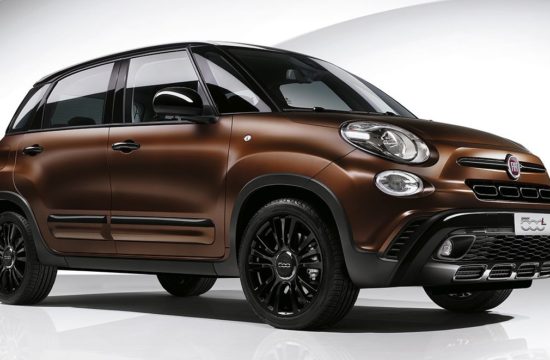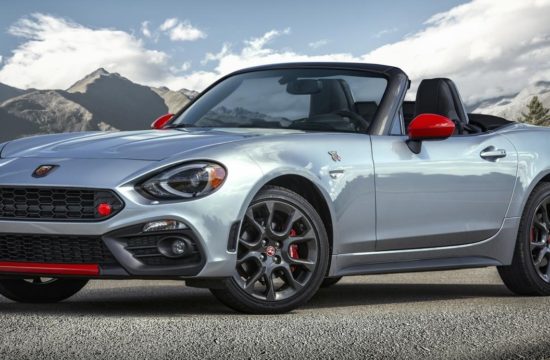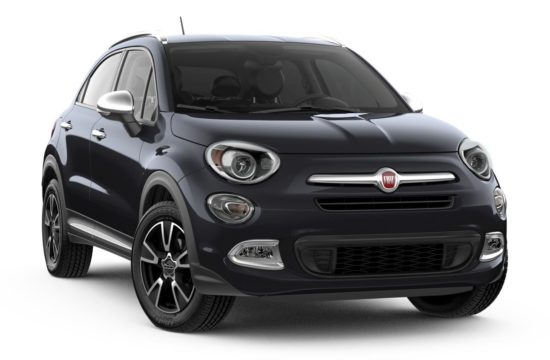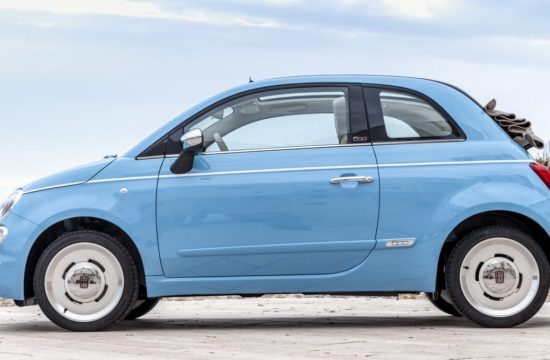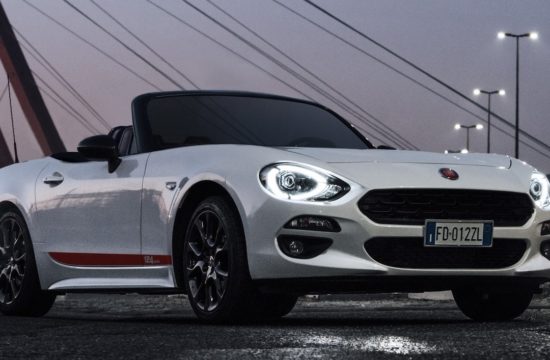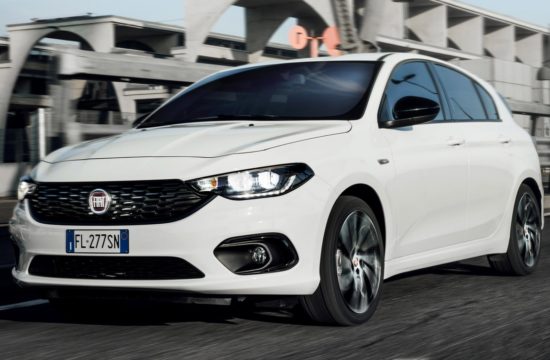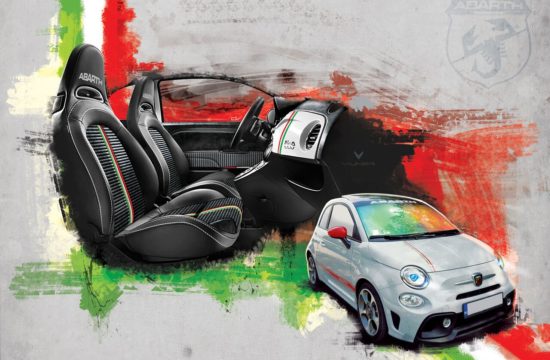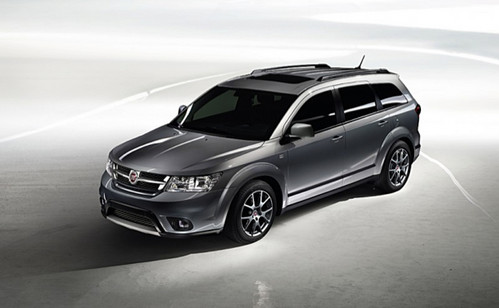
Fiat announced today what you can expect to see at their Geneva Show booth and released pictures of the Freemont’s interior. Fiat Freemont is a rebadged Dodge Journey which will be made in Mexico and go on sale in Europe.
A FWD Fiat Freemont equipped with the powerful 2.0 MultiJet 170 HP turbodiesel engine with “Bright Silver Metallic” body and black leather interior is the car that takes the stand at Geneva.
The options that can be specified for a Freemont are truly awesome and include seven seats, rear TV camera, satellite navigation with 8.4? touch screen, 19″ alloys, automatic three-zone climate control, rear parking sensors, sun roof and Video Pack (includes roof-mounted DVD). And don’t worry about the interior! Yes it’s an American car and they’ve never been good at making interiors, but something has happened and they’ve now got the hang of it. The Freemont/Journey’s interior is very fine, spacious and practical.
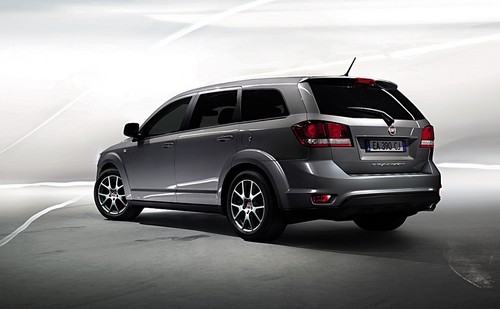
Fiat will also showcase their new “MyLife” range including the Punto, Qubo, Bravo and Doblo models.
The new Fiat range is the ideal response to customers who are increasingly attentive to technological innovation, driving pleasure and environmental issues. All this without having to give up on an original and distinctive design. Arranged on white flooring that enhances the Italian design, visitors can admire four cars from the new range – 69 HP Fiat Punto “MyLife” 1.2, 75 HP Fiat Qubo “MyLife” 1.3 MultiJet, 120 HP Fiat Bravo 1.6 MultiJet and 90 HP Fiat Doblo “MyLife” 1.6 MultiJet – all equipped with Euro 5 power units and Start&Stop as standard.
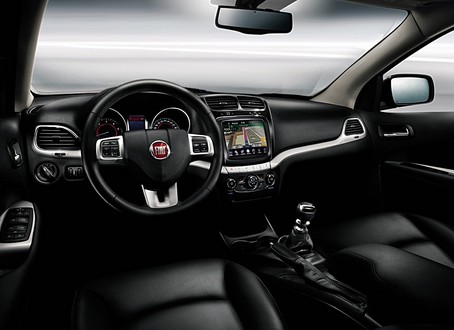
Also present in Geneva is the Fiat 500 TwinAir (coupe and cabriolet). These new two-cylinder models were designed to be as economical as possible, but they turn out as very exciting little cars that are actually not that good with economy given the size of the engine!
From now on, the TwinAir name will be applied not merely to an engine but to a genuine product line that will become the heart of the 500 model 2011 range. The 500 TwinAir range, aimed at an urban, fun-loving audience, is remarkable for its very individual looks and some product content that guarantees great value for customers.
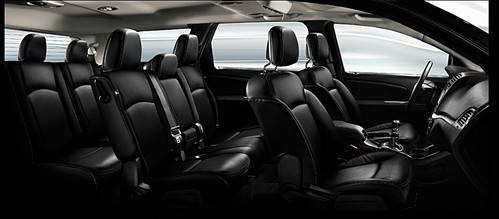
Everything is made more interesting by the adoption of the 85 HP TwinAir engine, forerunner of a new family of two cylinder engines from FPT – Fiat Powertrain, with performance levels between 65 and 105 HP. This makes this car extremely fun to drive by guaranteeing outstanding performance despite a significant reduction in fuel consumption: compared with the 100 HP 1.4 unit, the 85 HP TwinAir returns a 25% torque increase at 2000 rpm while slashing fuel consumption by 30%.

Pivotal to the 85 HP TwinAir is the adoption of the revolutionary MultiAir System combined with specific fluid dynamics optimised for maximum combustion efficiency. The new 85 HP TwinAir with Dualogic robotised gearbox is a supreme example of the downsizing philosophy, producing just 92 g/km of CO2: this is the lowest CO2 emission level so far achieved on the market by a turbo petrol engine.
The 85 HP TwinAir confirms the excellence of Italian car makers, envied the world over for their ability to produce engines of sporting power and temperament, “jewels of technology” in the true sense of the word, conceived by the passion and skill of Italian engineers and made with competence consolidated over decades of manufacturing. It is no coincidence that at the Geneva show, the pocket-sized Fiat 500 TwinAir stands side by side with the renowned Mefistofele, a record-breaking car built by Sir Ernest Eldridge on the base of a 1908 Fiat SB4 Corsa. This car, the only one of its kind in the world, has a fascinating history: Sir Eldridge bought a 1908 Fiat SB4, a racing car at the end of its competitive career with the aim of making a record-breaking car that would satisfy his dreams and be in keeping with the pioneering philosophy of the age. He modified the car by lengthening the chassis, using parts derived from a London bus and adding a Fiat A12 aircraft engine (the “A-12 Bis”) converted to deliver 320 HP at 1800 rpm (4 carburettors and 4 distributors were added in place of the 2 magnetos). On 12 July 1924, the Mefistofele – so called due to the bangs and puffs of smoke that it emitted when beating the world speed record – burned up the long beaten earth track at the extraordinary speed of 234.980 km/h.Avvocato Giovanni Agnelli purchased the car from the heirs of Sir Eldridge in 1969 and now this unique car belongs to Fiat’s historical collection and has been returned to perfect working order after a long and laborious process of restoration.


